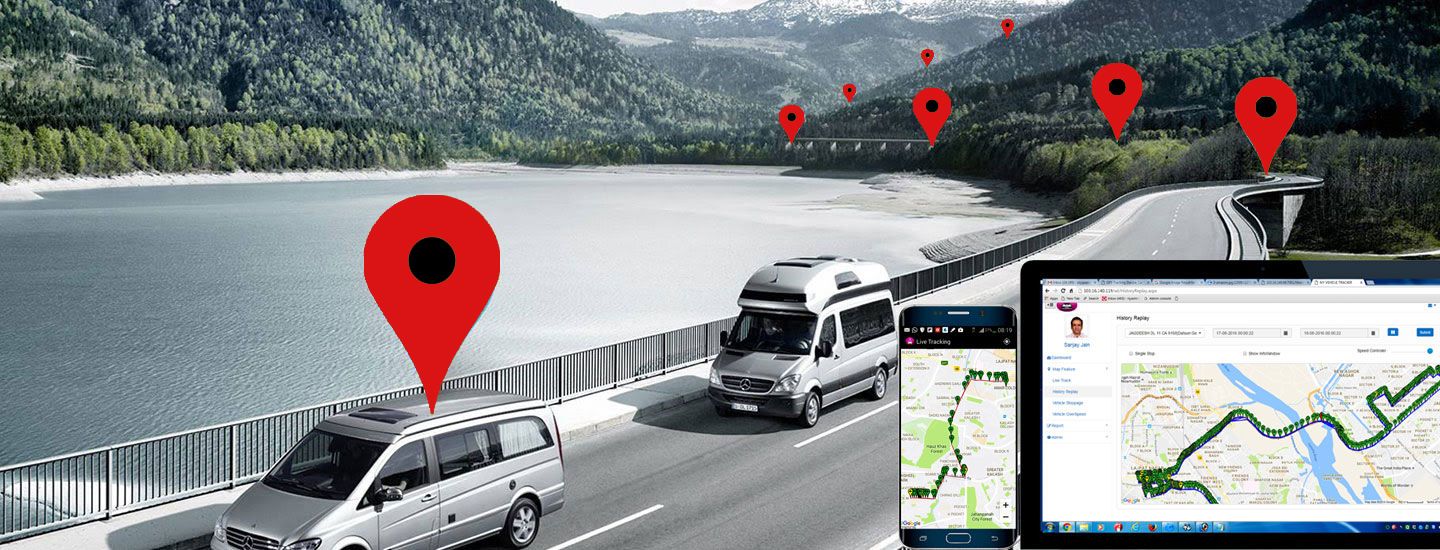Introduction:
GPS tracking systems empower businesses and individuals to make informed decisions and optimise their transportation operations. Whether you’re a logistics company looking to streamline your operations or a concerned parent wanting to ensure the safety of your teenage driver, a GPS Vehicle Tracking System can be a valuable tool in achieving your objectives.
What is a GPS tracking System?
A GPS tracking system is a technology that utilises the Global Positioning System (GPS) to determine and monitor the precise location of a person, vehicle, or asset in real-time or periodically. GPS is a satellite-based navigation system consisting of a network of satellites orbiting Earth. These satellites transmit signals that GPS devices on the ground receive, allowing them to calculate their exact location, speed, direction, and time.
Here are some component and features of a GPS tracking system:
- GPS Devices: These are small hardware units that receive signals from GPS satellites and determine their own coordinates. GPS devices can be installed in vehicles, smartphones, wearables, or attached to assets.
- Software Platform: A software platform or application collects and processes data transmitted by GPS devices. Users can access this platform through a computer or mobile device and it offers real-time tracking information, historical data, and various reports.
- Maps and Geofencing: GPS tracking systems often incorporate maps and geofencing capabilities. Maps display the location of tracked objects, while geofencing allows users to define virtual boundaries or zones on the map. When a tracked object enters or exits these zones, the system can trigger alerts or notifications.
- Data Storage and Reporting: GPS tracking systems store historical tracking data, enabling users to review past routes and activities. They also generate reports and analytics that can help businesses improve operations, enhance efficiency, and optimise routes.
- Alerts and Notifications: Users can set up customised alerts and notifications based on specific events or conditions, such as speeding, idling, or unauthorised vehicle use. These alerts can be sent via email, SMS, or through the tracking system’s interface.
Types of GPS Vehicles tracking system:
Real-Time GPS Tracking:
- Real-time tracking systems provide continuous and up-to-the-minute location data for vehicles. Offering live tracking on maps, they commonly serve fleet management, delivery services, and emergency response vehicles.
Passive GPS Tracking:
- Passive tracking systems store location and sensor data on a device within the vehicle. You can retrieve this data later for analysis. People often use passive systems for post-event analysis, like investigating incidents, monitoring employee behavior, or optimizing routes.
Active GPS Tracking:
- Active tracking systems transmit real-time location data to a central server or cloud platform. Users can access this data through web or mobile applications. Active tracking is suitable for real-time monitoring and immediate response.
Cellular-Based Tracking:
- Cellular-based GPS tracking systems use cellular networks to transmit data from the tracking device to a central server. These systems are widely available and don’t require any specialised infrastructure.
Satellite-Based Tracking:
- Satellite-based GPS tracking systems rely on satellite communication for tracking and data transmission. They are often used in remote areas or where cellular coverage is limited. However, satellite-based tracking can be more expensive than cellular-based options.
Hardwired GPS Trackers:
- Hardwired trackers are permanently installed in a vehicle’s electrical system. They offer greater reliability and tamper resistance compared to plug-and-play devices. They are common in commercial and fleet applications.
Mobile App-Based Tracking:
- Some GPS tracking systems rely on mobile apps to provide tracking and monitoring capabilities. Users can track vehicles or assets using their smartphones or tablets.
GPS Vehicles tracking system Advantage:
- Real-Time Location Monitoring: GPS tracking systems provide real-time information about the location of vehicles or assets. This helps businesses optimise routes, improve response times, and enhance overall efficiency.
- Improved Fleet Management: For businesses with vehicle fleets, GPS tracking allows for better management of resources. It helps reduce fuel costs, monitor driver behaviour, schedule maintenance, and increase overall fleet productivity.
- Enhanced Security: GPS tracking systems can deter theft and aid in the recovery of stolen vehicles or assets. You can set up alerts to notify authorities or owners when a vehicle exits a predefined area or operates outside specific hours.
- Reduced Fuel Costs: By optimising routes and monitoring driver behaviour (such as excessive idling or speeding), businesses can significantly reduce fuel consumption and operating costs.
- Increased Customer Satisfaction: Improved route planning and timely deliveries result in better customer service. Customers receive accurate arrival times and can track the progress of their deliveries.
GPS Vehicles tracking system Disadvantage:
- Privacy Concerns: GPS tracking systems can raise privacy concerns, as they allow for the constant monitoring of a vehicle’s location and movements. Employees or individuals being tracked may feel that their privacy is invaded, leading to potential disputes or legal issues.
- Initial Costs: Implementing a GPS tracking system involves purchasing hardware, software, and potentially subscription fees. The initial investment can be significant for businesses, especially small companies or individuals.
- Ongoing Costs: In addition to the initial costs, there are ongoing expenses associated with GPS tracking systems. such as subscription fees for data connectivity and software updates. These costs can add up over time.
- Maintenance and Installation: Installing and maintaining GPS tracking hardware can be time-consuming and may require professional installation. It can also be challenging to hide tracking devices to prevent tampering or removal.
- Resistance from Employees: Employees may resist the implementation of GPS tracking systems, fearing that their every move is being monitored. This can lead to morale issues and a negative work environment.
- Data Accuracy: Various factors, such as tall buildings, tunnels, and dense forests, can affect GPS signals, resulting in inaccuracies in tracking data. This can result in false alerts or incomplete information.
TITO by QodeNEXT: The Ultimate Vehicle Tracking Solution for Your Business
QodeNext’s TITO is a comprehensive truck management solution designed to optimize vehicle tracking and scheduling across facilities. TITO is the best of all these alternatives for a GPS vehicle tracking system. Using RFID, BLE, and IoT technologies, TITO lets you enjoy improved truck turnaround time with up to 30% better efficiency, eliminates pilferages with automated weight capture processes, and enhances trust with biometric systems.
FAQs: GPS Vehicle tracking system
Q.1 What is a GPS vehicle tracking system?
A1: A GPS vehicle tracking system is a technology that uses the Global Positioning System (GPS) to monitor and track the real-time location and movement of vehicles. It provides valuable data about a vehicle’s position, speed, direction, and more.
Q.2 How does a GPS vehicle tracking system work?
A2: GPS tracking systems work by receiving signals from GPS satellites and using that data to calculate the precise location of a vehicle. This information is then transmitted to a central server where it can be accessed by users through a software platform or application.
Q.3 What are the benefits of using a GPS vehicle tracking system?
A3: Some key benefits include improved fleet management, increased driver safety, reduced fuel costs, better route optimization, enhanced security against theft, and improved customer service through accurate delivery tracking.
Q.4 Can I track my vehicles in real-time with a GPS tracking system?
A4: Yes, GPS vehicle tracking systems provide real-time tracking capabilities, allowing you to monitor your vehicles’ locations and activities as they happen.
Q.5 Are GPS tracking systems only for businesses with large fleets?
A5: No, GPS tracking systems are used by businesses of all sizes, from small businesses with just a few vehicles to large enterprises with extensive fleets.
Conclusion:
The GPS Vehicle Tracking System represents a transformative technology that has revolutionised the way we monitor and manage vehicles and assets. This system harnesses the power of the Global Positioning System to provide real-time and historical location data, offering a multitude of benefits for individuals and businesses alike.
For businesses, GPS vehicle tracking is a game-changer in fleet management. It enables organisations to optimise routes, reduce fuel consumption, enhance driver safety, and improve overall operational efficiency. The ability to monitor vehicle performance, set up geofences, and receive real-time alerts empowers companies to make informed decisions and deliver better services to their customers. Contact us today to discover how QodeNEXT can help you transform your fleet management and security needs.





